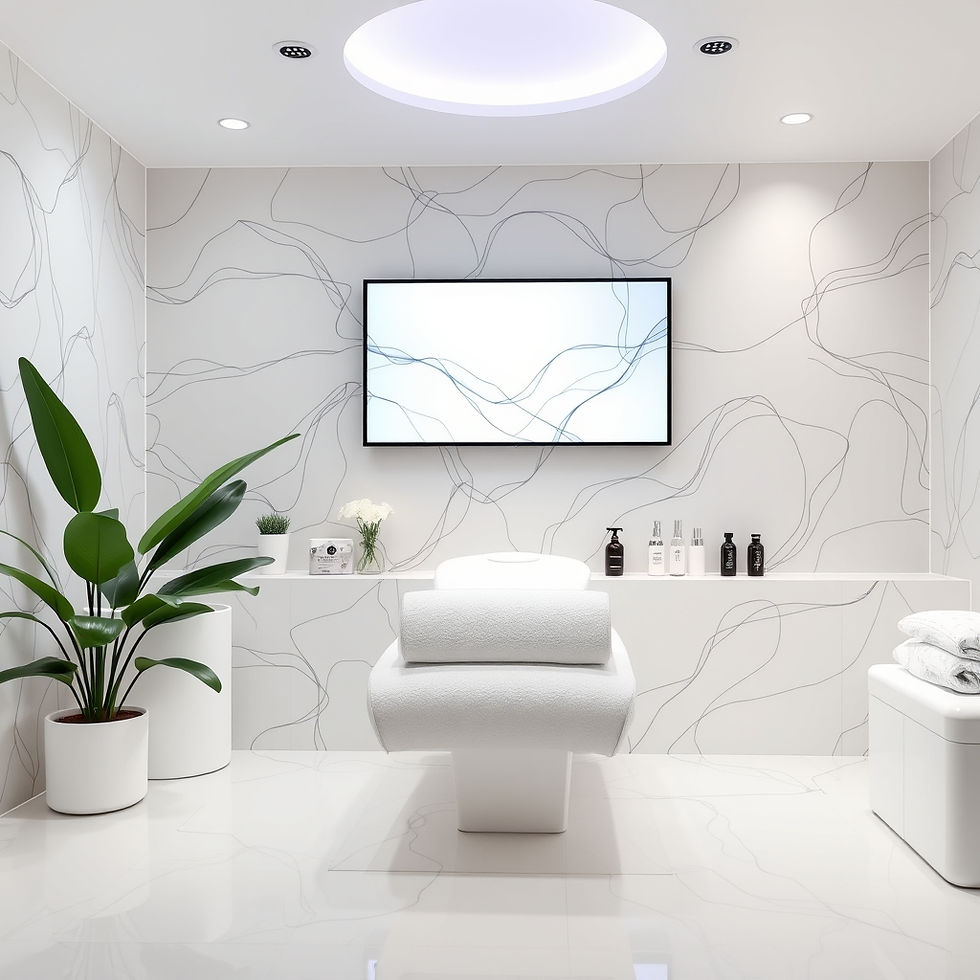Maximizing Profit and Patient Satisfaction: 5 Reasons why EVERY Doctor Should Consider Private Label
- kathywalton
- Apr 18, 2023
- 4 min read
Updated: Apr 20, 2023
-Author: Kathy Walton

The global medical skincare market size is expected to reach $28.6 billion by 2027. According to a recent report by Researchandmarkets.com, the global medical skincare market is expected to grow at a CAGR of 8.1% from 2023 to 2027.
According to a recent report by Researchandmarkets.com, the global medical skincare market is expected to grow at a CAGR of 8.1% from 2023 to 2027. This growth is driven by various factors, including an increase in the prevalence of skin conditions, a rise in the aging population, and growing awareness of the benefits of medical-grade skincare products.
Moreover, the demand for private labeling medical grade skincare is also projected to increase significantly in the coming years. As private label skincare products become more accessible and affordable, more doctors and medical spas are expected to adopt private labeling strategies to differentiate themselves from their competitors, provide unique solutions to their patients and increase their profits.

The COVID-19 pandemic sparked a demand for medical grade skincare products. The increase in hand hygiene and personal protective equipment led to an increase in the prevalence of skin conditions like dermatitis, eczema, and acne. This has resulted in an increased demand for the highest quality medical skincare products to combat skin problems brought on by pandemic protocols.
The demand for medical skincare continues. According to Grand View Research, North America held the largest share of the global medical skincare market in 2019, and this trend has continued. The growing aging population in developed countries such as the United States is a significant driver of demand for medical skincare products. The increased accessibility and affordability of private label skincare options further support the growth of the medical skincare market.

The value of private labeling medical grade skincare products lies in the ability to provide customized solutions that meet the diverse needs of patients. Unlike big skincare companies that offer a one-size-fits-all solution, doctors can create bespoke products that cater to specific skin types, conditions or concerns.
Private labeling medical grade skincare products can be an excellent way for doctors and medical spas to capitalize on this growing market.
Here are 5 reasons why every doctor should implement private label, medical grade skincare products in their practice:
1. By offering unique, high-quality skincare products that are tailored to the specific needs of their patients, doctors can differentiate themselves from their competitors and provide added value to their patients. The value of private labeling medical grade skincare products lies in the ability to provide customized solutions that meet the diverse needs of patients. Unlike big skincare companies that offer a one-size-fits-all solution, doctors can create bespoke products that cater to specific skin types, conditions or concerns. This level of personalization can drive patient satisfaction, loyalty and trust, leading to repeat business, and referrals.
2. Private labeling also provides an excellent opportunity to drive revenues from products consumed or sold directly from the medical practice. Providing skincare products that are tied to specific medical services can help a doctor’s bottom line as it allows them to offer a more comprehensive solution to patients.
3. Doctors need to think about branding their own practice versus competing with large skincare companies that market directly to consumers. By creating a unique private label product, medical practices can develop a differentiator and drive a customer-centric skincare line. It is imperative to identify branding and messaging strategy to cater to their target market since each medical practice may have a unique market base.
4. The future of private labeling medical grade skincare is sustainable and significant, and doctors can leverage this growing market to meet the changing demands of their patients effectively. Implementing a private label strategy can be highly beneficial to medical practitioners by increasing their bottom-line revenue profits and providing a more comprehensive solution to their patients.
5. Medical-grade skincare companies have shifted towards direct-to-consumer marketing, which has put doctor offices and medical spas in direct competition with these companies’ marketing tactics. This competition presents a challenge for doctors, as they risk losing revenue and patient loyalty. To remain competitive, doctors must differentiate themselves by offering unique services and providing added value to their patients. Only then can they continue to provide exceptional medical care and provide skincare products that meet the specific needs of their patients.

Over the years, medical-grade skincare companies have relied heavily on promoting their products to doctor offices and medical spas. However, in recent times, many of these companies have changed their marketing approach and have started marketing directly to consumers. This change in marketing tactics has put doctor offices and medical spas in direct competition with these skincare companies and has caused many doctors to lose revenue and patient loyalty.
Direct-to-consumer marketing has become increasingly popular among medical-grade skincare companies due to the rise of e-commerce and social media. These companies are now able to sell their products directly to consumers through their websites and social media platforms, which can significantly cut their marketing costs and increase their profits. Additionally, by marketing directly to consumers, these companies can build direct relationships with their customers and create a loyal customer base.









Comments